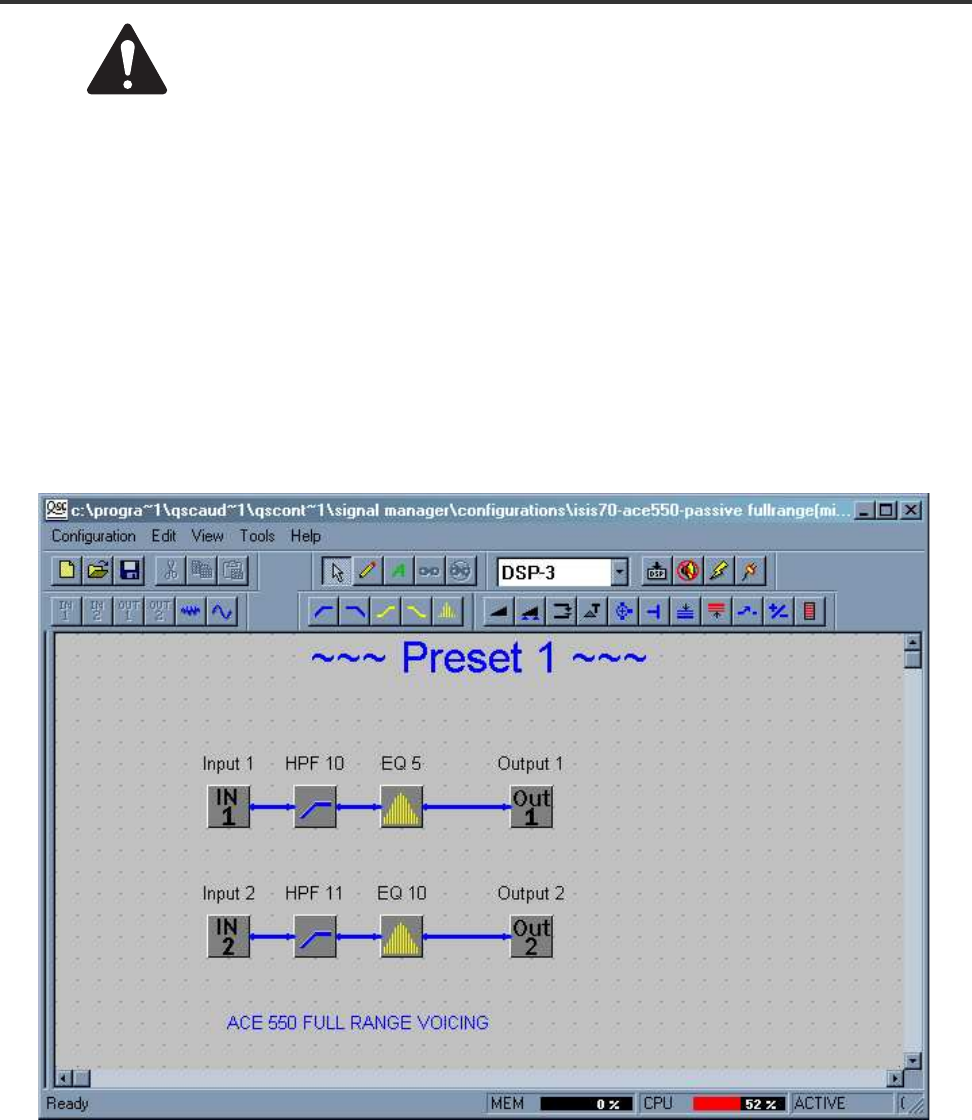
25
Processor Use: Configuring the Processors (Discrete 2.1)
How the Processors are configured is dependant on the system setup and desired results. For example, a
discrete 2.1 system requires a different signal chain than a mono 3-way stack. Decide how your system will
be set up before starting to configure the Processors. The following are examples only. They are to be used
to help understand the basic procedure for using the 215PCM in most circumstances.
Example 1- Discrete 2.1
Discrete 2.1 uses 3 channels of audio. The 2 main channels are typically referred to as “left” and “right” and
are full-range program material. These channels are driven by the 215PCM Top Box Outputs. The Subwoofer is
the third channel and its input is supplied by a separate track or channel. The Mode Switch should be set to
Discrete and all three inputs will be used. An example of a signal chain that might be used for the Top Box
Processor in this situation is:
The settings for the various high-pass filters and equalization will be a function of the speakers being driven, the
type of crossover desired (interaction with Sub), and desired results. The high-pass filter is usually used to remove
low-frequency content from the Top Boxes. This can be done simply to protect the speakers from cone overexcur-
sion or to remove overlap between the Subwoofer and Top Box responses.
NOTE! The factory setting for all eight Preset memories is wire-through. Signals are
passed from input to output without any processing. Each Processor must be config-
ured as desired by the user. You may select configurations from the sample files
(*.cfg) within Signal Manager or create your own.


















